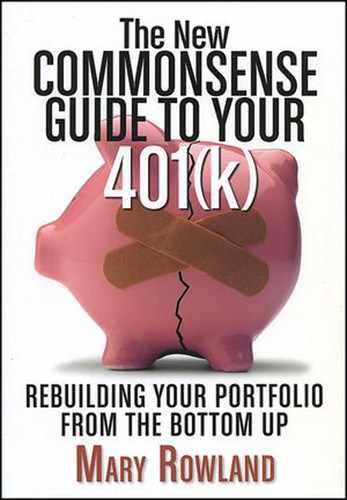WHY DOES THE GOVERNMENT always get involved in these stories? For a couple of reasons. First, the government loses billions of dollars in taxes each year because the dollars deposited into 401(k) plans have not yet been taxed. When tax reformers limited the availability of IRAs in the Tax Reform Act of 1986, they raised tax revenues by closing what some lawmakers viewed as a loophole for the "rich."
The second reason is an obvious one: Whenever Congress looks for a way to raise revenue, tax-deferred investments and tax-free investments get a close examination. That's what happened in 2009 as the Obama Administration looked for ways to solve the economy's collapse and raise revenue for the new programs it hoped to start. As Congress casts about looking for more tax revenue, nothing is sacred. There was buzz in early 2009 about eliminating, or seriously reducing, tax advantages for 401(k) plans. Most experts believe that's history now. The 401(k) plan, like the tax deduction for interest paid on a mortgage for a primary residence, has strong support from middle-class Americans. "They can tinker with the edges, but the 401(k) plan is here to stay," says Kyle Brown, counsel for retirement at Watson Wyatt in Washington.
Still, the Internal Revenue Service (IRS) keeps a close eye on how the plans are set up and maintained to make sure no additional taxes are lost. And Congress makes rules on when and how the money is withdrawn so that the government will eventually collect these lost tax dollars.
The Department of Labor is another player on the government team. Labor gets involved because 401(k) plans permit employers to provide part of employee compensation in the form of benefits rather than straight salary dollars in a paycheck. The Department of Labor wants to be certain that the money employees receive as benefits gets ample protection.
Like traditional pension plans, 401(k) plans are "qualified plans," which means that they qualify for preferential tax treatment. In the case of the 401(k) plans, all of the advantages we've been talking about give participants preferential tax treatment: Participants are permitted to contribute money before they pay tax on it. And employers, too, are permitted to make matching pre-tax contributions.
Qualified plans must obey strict guidelines if they are to maintain this special tax status. Plans at private companies must follow strict rules outlined in the tax code and the Employee Retirement Income Security Act of 1974, or ERISA. The rules govern participation, vesting schedules and nondiscrimination testing. They are enforced by the Department of Labor, the IRS, and the Treasury Department.
In addition to making certain that it gets its tax dollars eventually, the government wants to be certain that those tax dollars it gives up—at least temporarily—are used to benefit a broad range of employees, not just the highly paid executives who are setting up the plan. That's where the participation, vesting schedules, and nondiscrimination rules come in. To "qualify," a plan must prove that it provides benefits for all workers.
The government puts teeth in its regulations, too. A 401(k) plan that does not comply with all the rules can lose its special tax-qualified status or be "disqualified," a word that strikes fear in the hearts of employers and benefits consultants who design these plans. If a plan is disqualified, the sponsor, or employer who sponsors the plan, loses his tax deduction for all the contributions it has made. The employer must pay back taxes and penalties on the unpaid tax. Not only is this expensive, but "cheating" employees on their 401(k) benefits makes for bad publicity.
Disqualification would be bad news for participants, too, as it means they now owe taxes on all the money they have contributed to the plan. Tax lawyers and consultants call this the "big stick," referring to the punishment for employers who fail to comply. That threat makes employers eager to adhere to the rules laid down for qualified plans. It pays for you, too, to understand these rules.
